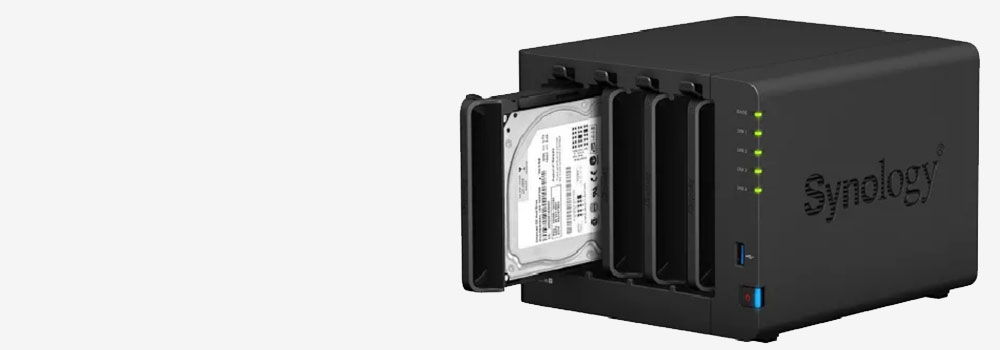Oxford Data Recovery – Specialised NAS Device Services
Understanding NAS Systems and Their Importance
Network-Attached Storage (NAS) systems are essential for storing, sharing, and managing data in both home and business settings. While multi-disk NAS devices are typically used for business operations requiring reliability and scalability, single-disk NAS devices are common in home environments for personal storage. When data loss occurs, professional recovery services become critical.
25 Years of Expertise in NAS Data Recovery
At Oxford Data Recovery, we’ve been recovering data from NAS systems for 25 years, helping clients in Oxford retrieve their valuable information quickly and securely. Our RAID forensic lab uses advanced tools and techniques to ensure high success rates, even for complex issues.
Types of NAS Systems We Recover
Our services cover a wide range of NAS configurations:
- Multi-Disk NAS Systems: Ideal for businesses requiring redundancy and scalability.
- Single-Disk NAS Systems: Commonly used in home setups for personal data storage.
Supported NAS Manufacturers
We specialise in recovering data from all major NAS brands, including:
- Seagate: Their IronWolf and IronWolf Pro series are tailored for NAS environments, offering high capacities and reliability.
- Western Digital (WD): The WD Red and Red Pro lines are popular choices for NAS setups, known for their performance and durability.
- Toshiba: The N300 series is designed for NAS applications, providing robust performance and scalability.
- HGST (now part of Western Digital): Known for their Ultrastar series, these drives are built for enterprise-level NAS systems, offering high reliability.
- Synology: Primarily a NAS device manufacturer, Synology has ventured into producing their own line of hard drives optimized for their systems.
- Samsung: While better known for SSDs, Samsung offers high-performance drives suitable for NAS environments.
- Hitachi: Their Deskstar NAS drives are designed for home and small office NAS systems, providing reliable performance.
- LaCie: A subsidiary of Seagate, LaCie offers professional-grade storage solutions compatible with NAS setups.
- Buffalo: Known for their NAS devices, Buffalo also provides integrated storage solutions with reliable hard drives.
- QNAP: Similar to Synology, QNAP produces NAS devices and has started offering hard drives optimized for their systems.
Types of Hard Drives Used in NAS Systems
Our expertise extends to all types of storage devices used in NAS systems:
- IDE Drives: Common in older or legacy NAS systems.
- SATA Drives: Widely used in current-generation NAS setups.
- M.2 SSDs: High-performance drives offering speed and efficiency.
RAID Configurations We Recover From
RAID (Redundant Array of Independent Disks) setups are critical for data protection and performance. We recover from:
- RAID 0: Enhanced speed but no redundancy.
- RAID 1: Mirrored drives for data redundancy.
- RAID 5: Balanced performance and reliability.
- RAID 10: Combining striping and mirroring for optimal results.
Common Causes of NAS Data Loss
Data loss in NAS systems can result from various issues:
- Logical Faults: Failed RAID rebuilds, corrupted file systems, or accidental deletions.
- Hardware Failures: Including motor damage, head crashes, or electronic faults.
Recovery Solutions for Logical Faults
Logical faults are software-related and often involve:
- Diagnosing failed rebuilds or corrupted RAID arrays.
- Recovering deleted, inaccessible, or lost data using specialized tools.
Recovery Solutions for Hardware Failures
Hardware issues require careful handling to prevent further damage:
- Component Repair: Fixing or replacing motors, read/write heads, and other parts.
- Data Extraction: Recovering information from physically damaged drives using advanced methods.
Importance of RAID Forensics in Data Recovery
RAID forensics ensures the integrity and completeness of recovered data:
- Advanced Tools: Used for RAID reconstruction and recovery.
- Secure Handling: Guaranteeing no data is compromised during the process.
Why Choose Oxford Data Recovery for NAS Systems?
Clients trust us for our:
- Specialised Expertise: Years of experience recovering data from RAID and NAS systems.
- High Success Rate: Proven solutions for complex cases.
- Customer Focus: Dedicated support tailored to individual needs.
Emergency Data Recovery Services for NAS Systems
Time-sensitive data loss requires immediate attention. Our emergency services include:
- Rapid Diagnostics: Quickly identifying the issue.
- Expedited Recovery: Minimizing downtime and restoring data as fast as possible.
Success Stories From Oxford Clients
Here’s what our clients have to say:
- “Oxford Data Recovery saved our company after a RAID 5 failure. The recovered data was critical to our operations!”
- “I thought I’d lost years of personal photos on my single-disk NAS, but they retrieved everything. Highly recommended!”
How to Get Started With Oxford Data Recovery
Getting started is easy:
- Contact Us: Share details about your NAS device and the issue.
- Assessment: We diagnose the problem and provide a recovery plan.
- Recovery: Using advanced techniques, we retrieve your data.
- Delivery: Recovered files are securely returned to you.
FAQs About NAS Data Recovery Services
Can you recover data from formatted or wiped drives?
Yes, our forensic lab specialises in recovering data from formatted or overwritten drives.
Can you recover data from any NAS brand?
Yes, we work with all major NAS manufacturers, including Synology, QNAP, WD, Drobo, QNAP and more.
What if my NAS drive is physically damaged?
We specialise in recovering data from physically damaged drives, including motor and head failures.
Can you recover data from a failed RAID configuration?
Absolutely. We handle RAID 0, 1, 5, and 10 recovery.
How long does the recovery process take?
Recovery times vary but typically range from 2 to 5 days depending on complexity.
What should I do if my NAS device fails?
Power off the device immediately and contact us to prevent further damage.


